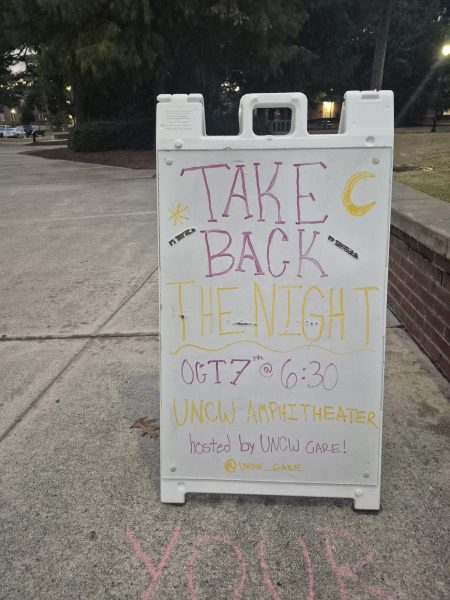Budget cuts and their effects on UNCW students
Wary of North Carolina’s $2.7 billion deficit,the Office of State Budgetand Managementinstructed all UNC campuses to draw up budgets for possible 5 percent, 10 percent and 15 percentcuts to their state fundingnext year. For UNCW, a 10 percent cut would mean a loss of $10 million per year and would force the school to lay off 91 employees, according to Vice Chancellor of Business Affairs, Charles Maimone.
Though UNCW’s enrollment is projected to increase, Maimone said the layoffs will include untenured lecturers. Those teachers who remain may have to take on more classes. When students enroll for next fall, they may find a gutted class catalogue with fewer sections of classes they need to graduate.
Incoming students could end up on a five-year graduation track, according to Maimone. Preventing that, he said, is one of UNCW’s top priorities in preparing its potential budgets for the next year.
The cuts, which the N.C. General Assembly hopes to finalize by the end of June, will compound with cuts from the last three years. Maimone said that the state has cut more than $30 million from UNCW’s budget in the last three years, and that permanent cuts to the school’s annual allotment have averaged $8.2 million per year.
So far, Maimone said, UNCW’s cuts have targeted non-academic programs like administration, landscaping and housekeeping.
“At the beginning of this fiscal year, we cut 90 positions,” he said. “The next $5 million has got to be people. Eighty percent of our funds are people anyway.”
Department chairs will propose their own cuts, said Herb Owen of the UNCW Budget Office. Both the state and Chancellor DePaolo can override those proposals, though, so the chairs must justify their budget revisions to the Business Affairs Office.
“Everyone’s in competition for funds,” Owen said. “How the pie is divided up is determined by how well you argue for your share.”
If cuts are deeper than expected, the university could be hard-pressed next year to provide students with the classes they registered for:
“We’re assuming a certain amount of state support in putting together our schedules,” said Chair of Foreign Languages Dr. Raymond Burt. “But we don’t know what the cuts will be and won’t know until after students enroll for next year’s classes. That’s kind of the big unknown.”
Dr. Burt also chairs the Scholars’ Council, a faculty committee that Chancellor DePaolo commissioned last fall to investigate how schools outside North Carolina have dealt with budget cuts. Dr. Burt said that the major cuts that plagued most states over the last 10 years have largely bypassed this state until the last few years.
According to Vice Chancellor Maimone, 80 percent of UNCW’s General Fund is tied up in the academic departments. Most of that 80 percent pays the school’s 800 tenured professors, whose salaries average $74,000.
In order to eliminate a tenured professor, the university would normally have to vet the process through the faculty senate and then phase out the professor in steps. For this reason, the elimination of tenured faculty isn’t a short-term solution.
“Upper-level university administrators are looking for a long-term solution,” said Dr. Burt. “There will be no return to the status quo.”
On January 14, President Ross of the UNC system’s Board of Governors set up an Elimination of Programs Committee to “find permanent savings by reviewing unnecessary duplication of existing programs” across the UNC system.
“If a major were eliminated,” said Dr. Burt. “The chancellor could release all faculty in the program, regardless of tenure. That’s always been there, but it hasn’t really been an option.”
However, the university cannot simply eliminate a major and leave the students in that program to fend for themselves. Maimone said that UNCW has a responsibility to students brought in under a certain catalogue. If the university cuts a program, it will phase out that program over three years.
Many UNCW parents and students have planned for their education under the assumption that a bachelor’s degree can be earned in four years. For those students whose only financial support is FAFSA, an extra semester due to botched registrations would have long-term financial consequences.
“That’s the scary thing about it,” said UNCW senior Taylor McElveen. “I owe my education to the taxpayers. If these changes take place while I’m at UNCW and I can’t get the classes I need, I might not have the funds to finish my undergrad, or go on to grad school.”
When asked what a five-year graduation track would mean to McElveen, she said that even if the Pell Grant remains intact, one more year would saddle her with an extra $5,000 in student loans.
“The thought of $20,000 in loans, or more than that…” she said, then trailed off and shook her head, eyebrows raised. “If I can’t get a decent job after college, there wouldn’t really be a way out. And there are people at this school worse off than me.”







